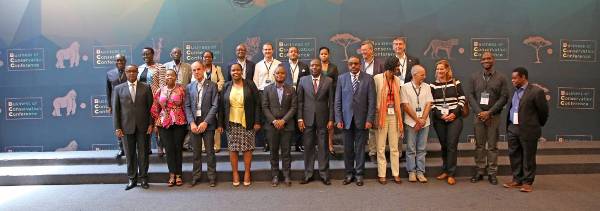
Kigali: Prime Minister Dr Ngirente Edouard said that Rwanda is not new to conservation and the protection of natural heritage since it recognized the critical need for conservation-based tourism and economic development through the protection of our natural ecosystems.
He made the remarks on Monday while opening the 2019 Business of Conservation Conference at the Kigali Convention Centre.
Prime Minister stressed that Rwanda has a strong tourism sector with a Tourism Strategy that is, and will continue to be both pro-conservation and pro-people.
He revealed that this strategy is focused on two important areas which are sustainability through responsible conservation, tourism and community involvement.
Dr Ngirente pointed out that to achieve its tourism goal, the Government of Rwanda, together with its partners both in the public and private sector are implementing strategies around the tourism infrastructure to support an increased length of stay, marketing Rwanda to the World and improving service delivery and conservation of the country’s wildlife.
“These strategies have resulted in significant results in Rwanda and for Rwandans over the past 15 years, visits to our national parks increased by 600% since 2003 and 250% growth in revenues from these same visitors.” Prime Minister said.
The Premier also noted that the solid foundation of conservation, with an aggressive but pro-conservation tourism strategy, has resulted in significant positive social-economic growth and development benefits for Rwandan citizens.
He revealed that the Government of Rwanda has invested more than $5.8 million since 2005 into more than 647 projects in communities surrounding the national parks.
Speaking about the revenue sharing program, Prime Minister said that it was originally 5% and then increased in 2017 to 10% of all tourism revenues and that this is about investing in communities around national parks providing economic development capacity and making the lives better for Rwandans. (End)
